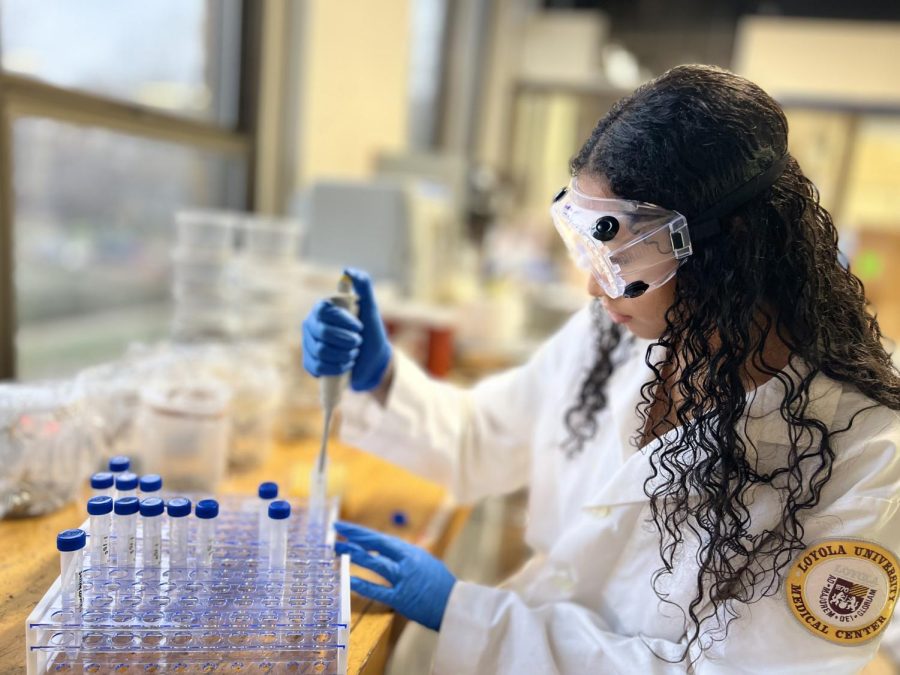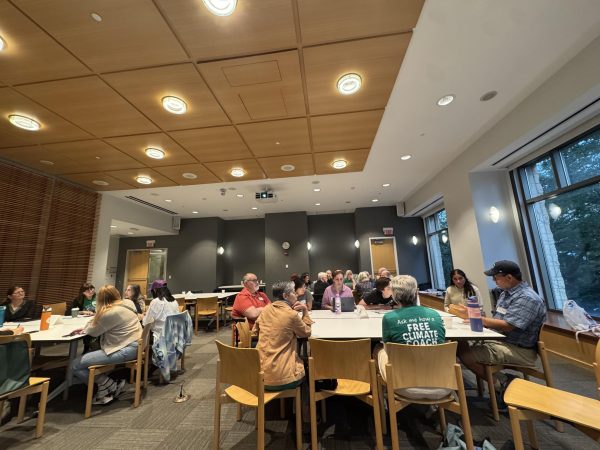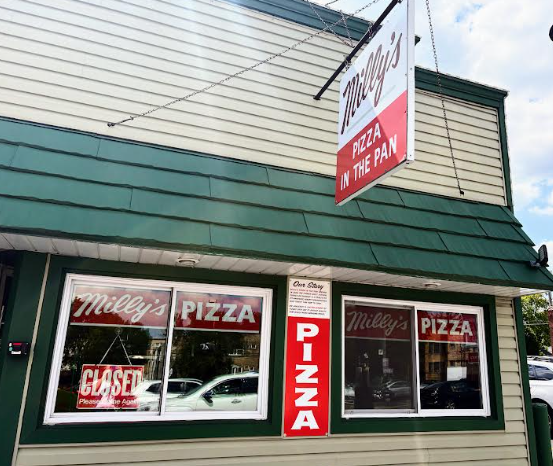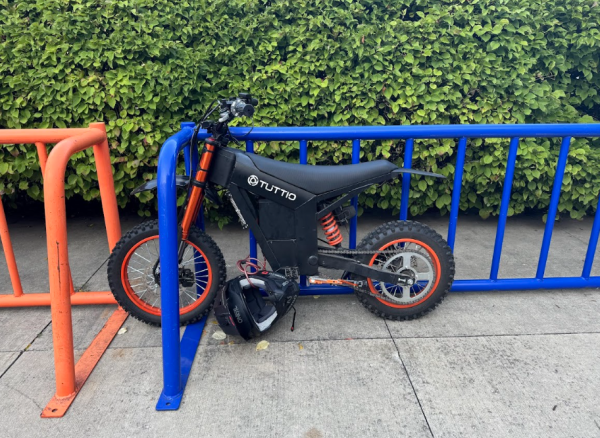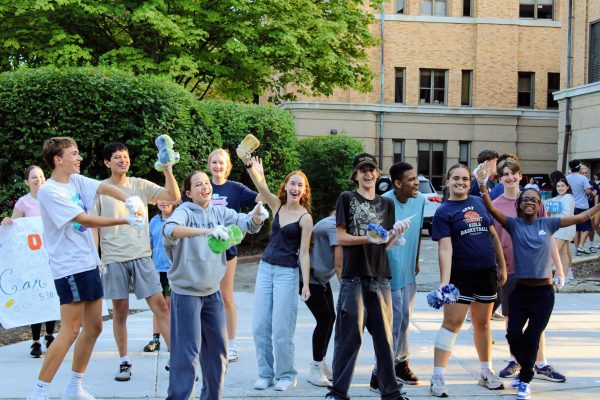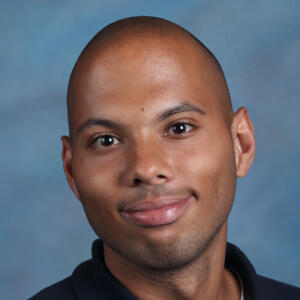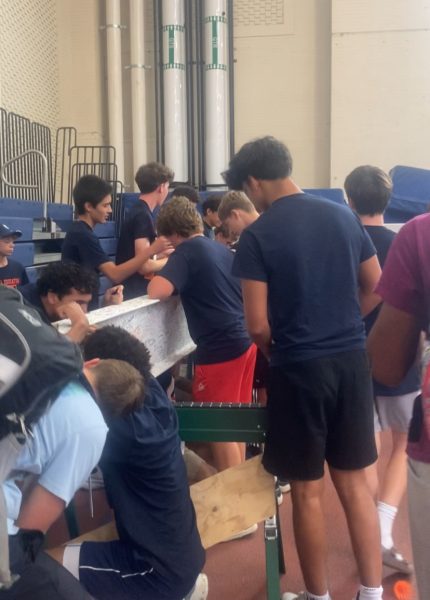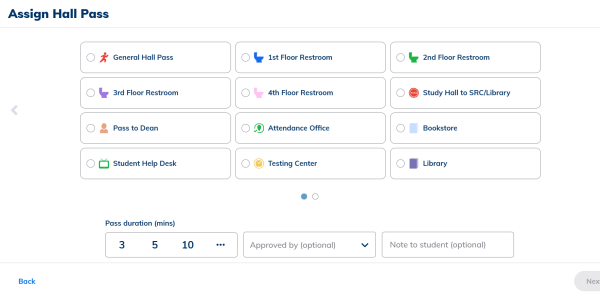Research course wins big
All 19 IRDI students accepted to prestigious competition, 2 win prizes
Junior Emily Porrez and senior Nadya Dhillon won first and third places at the 47th Annual Junior Science and Humanities Symposium for the Chicago region.
Porrez and Dhillon are among the 19 students in the Investigative Research Design and Innovation (IRDI) course at Oak Park and River Forest High School to qualify as semifinalists for the symposium, held on Feb. 25. No other Illinois school, including Oak Park and River Forest High School, has ever had this many students named semifinalists, according to Allison Hennings, who teaches the IRDI course.
The symposium is sponsored by the U.S. Department of Defense to “widen the pool of trained talent prepared to conduct research and development vital to our nation,” according to its website.
Only 24 finalists were accepted for the Illinois region overall. The selections were made based on 40-page research papers that students submitted by Jan. 27.
On Saturday, Feb. 25, the students attended the symposium, where they presented their work to experts.
After the presentations in the morning, eight students were selected as finalists. Five OPRF students were part of that group: Nadya Dhillon, Emily Porrez, Rhea Richards, Marina Sjoblom and Phoebe Tanacea. Each faced a “very rigorous questioning session” from an expert judge, according to Hennings.
Ultimately, Porrez won the competition, taking home a $2,000 prize, and Dhillon came in third, winning $1,000.
This is the second major award for Dhillon, who was recently named a Regeneron Science Talent Search scholar.
The finalists will get an all-expense paid trip to the National JSHS symposium in Virginia Beach from April 12 to 15, where they compete for recognition and undergraduate tuition scholarships.
Hennings said she is “exceptionally proud of the hard work, dedication, perseverance, and ingenuity” that the students have each exemplified throughout this year.
The IRDI class was designed by Hennings and proposed to the curriculum for the honors level year-long course in 2009 in order to give the opportunity for all students who desired a formal course to conduct original high school research.
Junior Sahiba Dhillon, who is currently taking the course, said, “IRDI has been a really awesome experience for me. I’ve been able to create friendships while creating a project I’m proud of. And to be chosen as a semi-finalist…that’s incredible.”
In order for students to complete their research and design a product, they must consult a professional in the field who will serve as a mentor during the process.
Mentors can be found at a local or international level, according to Henings. “These mentors often work at universities, medical facilities or places of industry,” she said.
While students are collecting data for their experiment they also write a formal research paper in small segments throughout the year that they eventually enter into science symposia locally, nationally and even internationally.
“Students have created a multitude of products, from proposing a new ballet flat to modeling biodegradable and environmentally friendly packing materials,” Science Division Head Matthew Kirkpatrick said.
Beginning in the 2024-25 school year, IRDI will be renamed AP Research. “This will allow students to do the same high-quality research…but also allow them to qualify for the College Board’s AP Capstone Diploma and/or AP Research Certificate distinction,” Hennings said.
Next year, students will have to take AP Seminar, an introductory class that will serve as the prerequisite for AP Research. Students will learn basic research skills in the AP Seminar course such as synthesizing information from various sources.
“We expect the combination of AP Seminar and AP Research to provide more opportunities for students to complete a research project during their time here at OPRF,” Kirkpatrick said.
Students who take IRDI are able to use their knowledge to gain access to opportunities such as internships, scholarships and application topics. This allows the IRDI experiences to go beyond the lab room and touch the lives of students. “Students that conduct research have the potential to have their bold new ideas mpact (the) complex challenges of our world,” Hennings said.
This year’s IRDI projects are:
Marina Sjoblom: Effects of Prenatal Azithromycin Exposure on the Nervous and Digestive System Development of Schmidtea polychroa: A Novel Toxicology Model With Applications for Human Development and Safety of Potential ITPp Malarial Treatment
Mentors From: Morgridge Institute of Research, Stowers Institute of Medical Research, Rutgers University
Ezekiel Wells: The Impact of Chemical and Conductive Pretreatments on the Enhancement of Biogas Yield During the Anaerobic Digestion of Organic Waste: A Meta Analysis
Mentors From: Pacific Northwest National Laboratory
Bianca Turner: Bulk Scale Synthesis of a Novel Dual Core-Shelled Sulfur Cathode Composite for High Power Lithium Sulfur Batteries With Application for Use in Electric Vehicles
Mentors From: MIT, IIT, UIUC
Phoebe Tanacea: The Impact of Natural Antioxidants on Beta-Amyloid-Associated Pathology in a C. elegans Model of Alzheimer’s Disease
Mentors From: MIT
Jonathan Schiff: The Enzymatic Hydrolysis and Subsequent Fermentation of Varying Concentrations of Mixed Algae Culture for Optimization of Ethanol Production
Mentors From: US Department of Energy and Northwestern University
Henry Roloff: Effects of Paternal Nicotine Exposure Through E- Cigarette Vapor on the Development of Offspring in Drosophila melanogaster
Mentors From: Tufts University, University of California San Francisco, London School of Hygiene and Tropical Medicine
Rhea Richards: Reducing Net Emissions From Direct Air Capture: Using a Calcium Hydroxide Absorbent and Repurposing the Resulting Calcium Carbonate as a Fertilizer
Mentors From: Dynatrac, DePaul University.
Emily Porrez: Novel Prevention and Treatment for Candida albicans via Antifungal Inhibitors of Lactobacillus acidophilus and Utilization of a Bombyx mori Infection Model
Mentors From: University of Chicago, Teikyo University Institute of Medical Mycology
Amelia Perisho: Reducing Construction Waste The Effect of Basalt Fiber on the Compressive Strength of Mixed Recycled Aggregate Concrete for Building Applications
Mentors From: Texas State, Iowa State
Mateo Nery: Structural Enhancement of Novel Waste Based Triboelectric Nanogenerators With Applications in Antarctic Ice Core Analysis Machinery
Mentors From: MIT, Purdue University, COLDEX
Helen Lallos-Harrell: The Novel Use of Epinephrine to Prevent Hypoglycemia in Type 2 Diabetic Individuals: A Silkworm Model
Mentors From: Northwestern, Kaneland Allergy & Asthma Center
Victoria Evans: Impact of Varying Diets on the Mass and Survival of Tenebrio molitor for Assessment of Insect Use as a Protein Source and Plastic Biodegradation Tool
Mentors From: University of Wisconsin Madison, University of Edinburgh, North Carolina State University, Loyola University Medical Center
Sahiba Dhillon: A Novel Method of Bioremediation of Lead (II) Contaminated Wastewater Using Lactobacillus acidophilus and Chitosan
Mentors From: University of Southern California , Yuan Ze University ( Taiwan)
Nadya Dhillon: The Effect of a Novel Biomedical Technique on the Reprocessing of Biofilm-Contaminated
Duodenoscopes Using Copper Sulfate and Methylene Blue Irradiated with Red Light
Mentors From: University of Liverpool, University of Southern California
Isaac Davies: Effect of Carbon Dioxide Concentration and Water Media on the Carbon Fixation of Algal
Polycultures to Reduce the Expenses of Carbon Capture Technologies
Mentors From: University of Missouri, University of Kentucky, Penn State University
Rachel Chung: The Impact of Increased Salinity on the Efficacy of Freshwater Algae to Remediate Antibiotic Contaminated Wastewater
Mentors From: Metropolitan Wastewater Treatment Reclamation District of Chicago, New Mexico State University
Aurelia Brice: Examining the Long-Term Societal Effects of Drought by the Application of Social
Network Analysis to Mayan Polity and Trade Data
Mentors From: University of Notre Dame, University of Arizona
Jackson Baker: Replacing Synthetic Pesticides With Beauveria bassiana to Test the Impact of Varying
Environmental Humidity on Beauveria bassiana’s Ability to Kill Mealybugs
Mentors From: Cornell, Chicago Field Museum, Morton Arboretum and Joliet Junior College
Grace Koch: Systematic Review and Meta-Analysis of Varying Filament Thermal Conductivity Produced by Methods of Additive Manufacturing for the Optimization of the Ice Diver Thermal Probe
Mentors From: COLDEX, US Naval Academy, Argonne National Laboratory, Texas A&M

